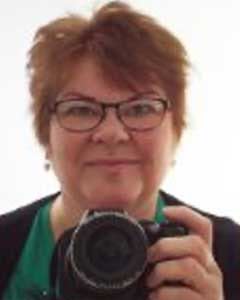(Republished with permission from the diocese of Fredericton eNews.)
About 80 people attended a community service of reconciliation held at All Saints Church in St. Andrews Oct. 1. The Anglican Church of Canada’s first national Indigenous bishop, Mark MacDonald, was the guest preacher.

The ecumenical service saw participation from a wide range of community churches and members, including All Saints parishioner Judith Moses, who is a member of the Delaware Nation.
The service began with a smudging ceremony led by Cate Akagi of the Passamaquody Nation. She opened the service with prayer honouring the four directions.
Cate, Simone Ritter and Joyce Mulvihill sang and played guitars, leading the congregation in several songs with the themes of friendship and peace. Two members of St. Andrews’ clergy, Jane Doull of Wesley United and Dinesh Gomes of St. Andrews Baptist, participated, as did United Church candidate Emma Seamone. Peter Mitchell was the organist.
To honour and acknowledge Indigenous heritage, Archdeacon John Matheson noted that All Saints Church sits on unceded and unrecognized lands of the Passamoquody and he gave thanks for allowing the church and the gathering. The Passamoquody Nation has not been recognized by the federal government.
Gifts were exchanged among Bishop MacDonald, Diocese of Fredericton Bishop David Edwards, Cate Akagi (representing the Passamoquody Nation), and Bob Cheatley, president of St. Stephen’s University (SSU).
The service was the culmination of a three-day symposium hosted by SSU called Sacred Encounter: A Symposium Towards Reconciliation. Bishop MacDonald was a facilitator and Bishop David attended. The symposium is a response to some of the Calls to Action from the Truth and Reconciliation Commission, put in place to address the wrongs of the residential school system.
The highlight of the service was hearing from Bishop MacDonald, who noted he has been the Indigenous bishop for 10 years.
“The first three or four years were pretty rough,” he said. “Because nobody showed up when I went somewhere.
“There would be an announcement that Bishop Mark MacDonald would be speaking, and often, it would be me and the AV person. I expected that was the kind of ministry I was going to take part in.”

He suspects the lack of interest was because people were burned out over Indigenous issues, but something changed along the way.
“It was in Vancouver. I expected a few people, but it was standing room only. Ever since then, there have been good turnouts,” he said, noting it has nothing to do with his reputation but with people’s hopes for the future.
“Hope is a necessary thing,” he said, “not just in faith, but in politics as well. We are beginning to have hope that Canada can be a different place.”
Bishop MacDonald spoke on what he learned from his experience speaking in South Africa, one of the first places to hold a truth and reconciliation program.
“Truth and reconciliation is first and foremost about determining what lies will no longer be tolerated in civil society,” he said. “Most of us were raised to believe Canada is a special place where we didn’t do things like those countries south of us. That is a lie we can no longer tolerate — that Indigenous people were treated fairly.”
Secondly, reconciliation is not about the past, even though the Truth and Reconciliation Commission process was immersed in it.
“It’s about a shared future — defining what that future will be, and determining what is just and how we can live in justice with each other,” he said.
“When we can welcome new people here with open arms and not have to destroy the people who were here in order to do that, if you’re willing to grasp that, then this is an exciting time for all of us.”
His final point was on the gospel relative to Indigenous society.
“God didn’t get off the boat with Columbus,” he said. “God was already working here among us before the first contact. He is still working in us. It is our task, prayerfully, together, to discern God’s living way for our futures.
“We cannot be obscured by lies of the past or the present. God has a will and a way for us as a people, as a nation. That is a worthwhile pursuit.”
Afterwards, Bishop Edwards spoke briefly, beginning by noting his very busy schedule of the previous month.
“So when the invitation came [for the symposium], I said, ‘Can I get away with going to the movie and the service?’ But Cheryl, my secretary said, ‘No, you need to go to all of it.’ Cheryl was right,” he said.
“The symposium impacted me more than anything in a long time,” he said, adding he was left largely speechless by the experience.
He told the congregation that he’s known as an extreme extrovert, “but the people at the symposium must think I’m an introvert because most of the time I didn’t say anything. The Holy Spirit was working.”
After the service, everyone gathered for refreshments and fellowship in the church.
EDITOR’S NOTE: As a recognition of Indigenous heritage, any parish can begin a service or special gathering with an acknowledgement that their church sits on traditional Indigenous land. It is a courtesy and can be done at the beginning of a celebration or ceremony.







